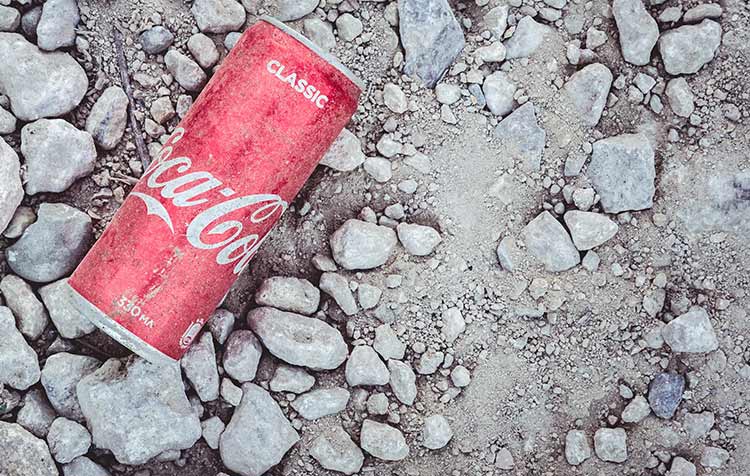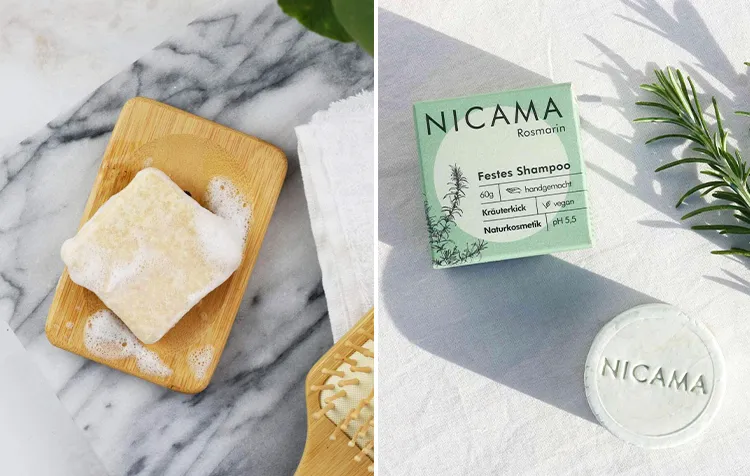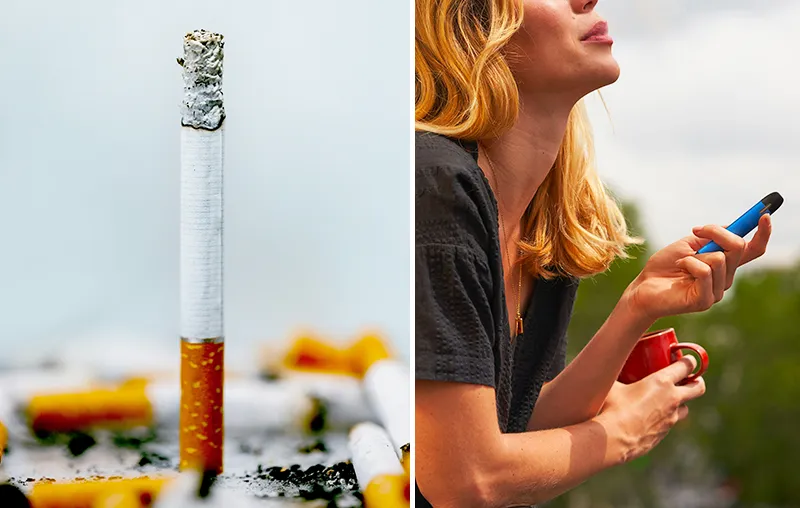Avoid aluminum und dir sowie der Umwelt einen großen Gefallen tun: Das Material ist zwar bekannt dafür, in vielen Situationen unentbehrlich zu sein, doch die Herstellung von Aluminium verbraucht enorm viel Energie und belastet zudem noch stark die Umwelt. Darüber hinaus zeigen mehrere Studien mittlerweile, dass Aluminium auch in Speisen übergehen kann und auf diesem Wege schließlich in den menschlichen Körper gelangt.
Doch glücklicherweise gibt es einige sinnvolle Alternativen, die ein Leben ohne Aluminium möglich machen. In diesem Artikel möchte ich dir die ökologischen Folgen des Aluminiums erklären und dir die besten Tipps für einen alufreien Alltag mit an die Hand geben.
Ökologisch untragbar: Die Herstellung von Aluminium

Mittlerweile begegnet dir das glänzende Metall nahezu überall: In Küchenmaschinen, in Verpackungsmaterialien, in verschiedenen Bauteilen der Elektrobranche, im Deodorant, an den Außenseiten deiner Fenster und in vielen weiteren Bereichen. Aluminium ist kaum noch aus dem Alltag wegzudenken und trotz des problematischen Herstellungsprozesses ist der Einsatz des Materials in der Gesamtbetrachtung auch durchaus sinnvoll, wie etwa dort, wo die Materialien eine besonders hohe Haltbarkeit aufweisen müssen.
However, aluminum is unfortunately used far too often where it really has little to do: in the packaging and food sectors, where it is ultimately treated as a disposable commodity.
Hierzu gebe ich dir gerne ein Beispiel: Um Dein Butterbrot einmalig transportfähig zu machen, wickelst du es schnell in Alufolie. Das Verhältnis von ökologischem Nutzen und Aufwand ist hier nahezu absurd, insbesondere weil es mittlerweile deutlich gesündere und bessere Verpackungsmöglichkeiten gibt. Als Rohstoff ist Aluminium viel zu kostbar, um einmalig eingesetzt zu werden und als Wegwerfprodukt zu dienen.
Live aluminum free: 10 tips to avoid aluminum
In unserem Alltag lauert das Metall leider an jeder Ecke. Dabei lässt sich der meist unnötige Verbrauch des Aluminiums ganz einfach reduzieren. Nutze die folgenden Tipps, um dein Leben etwas aluminiumfreier zu gestalten.
1. replace aluminum foil sustainably
Instead of aluminum foil, simply use BPA-free Stainless steel food storage containers, Glas oder Porzellan. Kunststoff möchte ich dir an dieser Stelle nicht uneingeschränkt empfehlen, denn in diesem Material können andere Gefahren lauern und es ist mindestens ebenso umweltbelastend wie Aluminium.
If with the aluminum foil you only Preserving food for longer then I recommend you to read the article on the Make your own beeswax cloths. There you will learn how you can sustainably replace aluminum foil and cling film from old materials.
2. prefer sustainable products
Es gibt glücklicherweise einige Anbieter, die sich ausschließlich auf den Verkauf natürlicher Produkte spezialisiert haben. So bietet dir zum Beispiel der Shop ÖKO Planet ausgewählte, natürliche, allergiker-geeignete Produkte wie Öko-Bettwaren & Matratzen, Haushaltswaren, Bio Wellness- und Pflegeprodukte und sogar Naturmode nicht nur in großer Auswahl, sondern auch zu äußerst fairen Preisen.
So don't always use the first port of call, but always take a look at the philosophy of a platform.
3. cook yourself to avoid aluminum
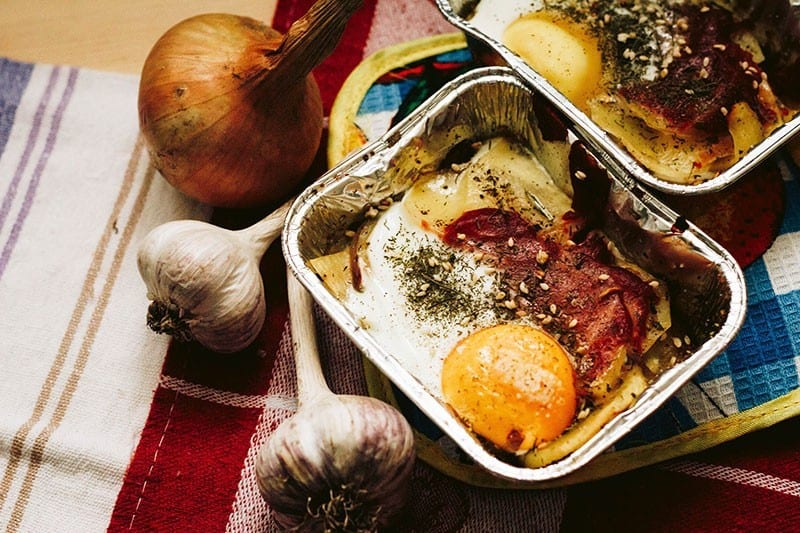
Bei Lebensmitteln kommen zahlreiche Verpackungen zum Einsatz, die Aluminium enthalten. Vermeide deshalb den Kauf von Fertigprodukten wie Tütensuppen oder Soßenpulver. Frisch kochen ist nicht nur deutlich gesünder und leckerer, sondern es hilft außerdem, dass du weniger Alu im Alltag verbrauchst.
Für leckere (vegan) Rezepte solltest du übrigens unbedingt in unserem Healthy eating blog drop by!
4. natural cosmetics to avoid aluminum
Alu steckt in vielen Pflegeprodukten, die wir täglich verwenden, wie Lippenstift, Deo oder Creme. Wirf deshalb immer einen Blick auf die Liste der Inhaltsstoffe, denn mittlerweile gibt es viele Produkte, die sogar damit werben, aluminiumfrei zu sein. Naturkosmetik ist in diesem Hinblick oft eine gute Wahl.
For example, you can start with my article on the Make deodorant yourself. There you can be sure that you avoid aluminum. A ready alternative also offers this alu- and plastic free deodorant.
5. grilling without aluminum foil
Alugrillschalen sind vollkommen überflüssig, denn sowohl für den Grill als auch für den Backofen gibt es deutlich bessere Varianten. Um Fleisch, Käse oder Gemüse im Backofen zuzubereiten, erfüllt eine normale Auflaufform diesen Zweck mindestens genauso gut, wenn nicht sogar besser. Beim Grillen nutzt du hingegen umweltfreundliche Reusable stainless steel grill trays für die Zubereitung.
Weitere Tipps erhältst du auch im ausführlichen Artikel über das Barbecue without plastic.
6. use pan without aluminum
Wenn du dich mit neuen Küchengeräten eindecken willst, solltest du die Finger von einer aus Aluminium gegossenen Teflonpfanne lassen. Greife stattdessen zu einer Pfanne aus Edelstahl oder Gusseisen zurück. Um sicher zu gehen, informiere dich vor dem Kauf einfach noch einmal genau darüber, ob Aluminium in der Pfanne enthalten ist. Leider täuscht der erste Blick häufig.
7. avoid aluminum cans
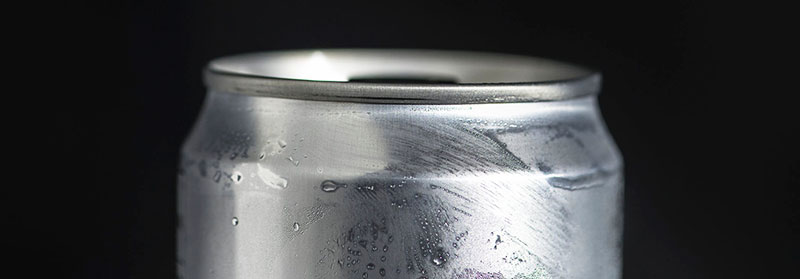
Konservendosen können aus Weißblech oder aus Aluminium bestehen. Besonders bei Fischkonserven setzen die Hersteller häufig Alu ein. Du kannst aber mit einem leichten Trick das Material identifizieren: Halte einfach einen Magneten an die Dose. Aluminium ist nicht magnetisch, Weißblech schon.
8. Süßigkeiten ohne Aluminiumfolie kaufen
Sei auch beim Kauf deiner Süßigkeiten vorsichtig: Einige Süßigkeiten-Hersteller setzen bei der Verpackung von Schokolade und Kaugummis leider immer noch auf Alufolie. Aber hier gibt es auch jede Menge Alternativen, die du ebenfalls in jedem Supermarktregal findest. Indem du als Verbraucher alufreie Produkte bevorzugst, hilfst du auch dabei, Redesign products. Denn Hersteller sind immer daran interessiert, was der Kunde will. 😉
9. avoid TetraPaks with aluminum
Tetra-Packs und Getränkedosen sind zwar äußerst praktisch, sie verursachen aber enorm Müllberge und enthalten ebenfalls Aluminium. Auch wenn deine Einkaufstasche vielleicht etwas schwerer wird, sind Mehrwegflaschen aus Glas immer noch die beste Alternative. Das gilt zum Beispiel für den Kauf von Milch, die eben auch in der Pfandflasche erhältlich ist.
10. replace coffee capsules with reusable ones
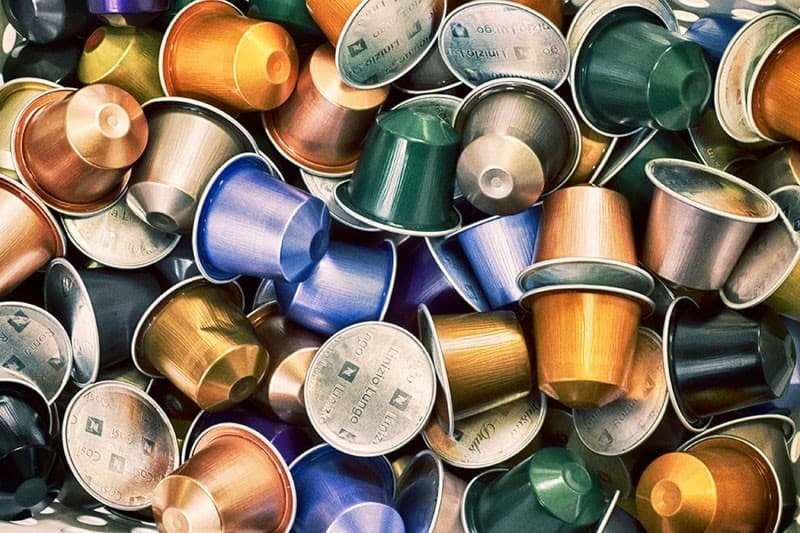
8.000 Tonnen Alu-Müll entstehen jedes Jahr durch Kaffee-Kapseln. Für ein Kilogramm Kaffee zahlen Benutzer umgerechnet 70€ pro Kilogramm. Wahnsinn, oder?
Wenn du eine Kapsel-Kaffeemaschine hast oder z.B. im Büro mitbenutzt, ersetze die Einwegkapseln durch Mehrwegkapseln aus Edelstahl. Du musst zwar den gemahlenen Kaffee selbst einfüllen, hilfst damit aber unserer Umwelt und auch deinem Geldbeutel ungemein.
Life without aluminum - uncomplicated, right?
Wie du merkst, ist es gar nicht so schwer, im Alltag auf Aluminium zu verzichten. Dennoch ist vielen gar nicht bekannt, dass dies überhaupt sinnvoll ist.
Aluminum stands according to Bundesinstitutes für Risikobewertung in Verdacht, Auslöser für bestimmte Krankheiten wie Demenz und Brustkrebs zu sein. So fanden Forscher heraus, dass bei Brustkrebspatientinnen ein erhöhter Gehalt an Aluminium im Brustdrüsensekret vorliegt. Bisher ist jedoch noch unklar, ob es sich dabei um den tatsächlichen Auslöser der Krebserkrankung handelt, oder ob es eher als Folge daraus resultiert.
Ab einer bestimmten Konzentration schädigt Aluminium nicht nur das Nervensystem und hat eine negative Wirkung auf die Fruchtbarkeit sowie das ungeborene Leben, sondern es hemmt auch gleichzeitig die Knochenentwicklung. Auch soll Aluminium Lernschwäche, Hyperaktivität und Aufmerksamkeitsstörungen provozieren.
Schon seit geraumer Zeit wird das Problem Aluminium vom BfR also als kritisch bewertet, aber noch immer wissen viel zu wenige Menschen Bescheid über die vielen Gefahren und Probleme, die mit dem Metall einhergehen. Ich hoffe, dass ich dir hier zeigen konnte, wie einfach es ist, Aluminium im Alltag deutlich einzuschränken oder gar gänzlich zu vermeiden. Du tust damit sowohl deiner Gesundheit als auch unserer Umwelt einen großen Gefallen!
Hast du Fragen, Tipps oder eigene Erfahrungen mit der Vermeidung von Aluminium gemacht, die du teilen möchtest? Dann hinterlasse mir gern einen Kommentar.
Stay clean,

PS.: Auf Aluminium zu verzichten kann Gold wert sein. Der Großteil meiner Arbeit dreht sich aber eigentlich um das Life without plastic. If you would like to know more about this, I can send you my Plastic-free book for beginners to your heart. Have fun reading!

